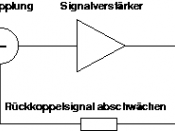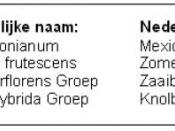The officers are lack of motivation. There are 3 factors that make up motivation, of which none were satisfied. First, there is no direction because the task is not goal-oriented. That is, there no direction for the employees to perform the tasks. Therefore inadequate efforts are allocated to the completion of tasks and continuing of that effort is always hard because there is no specific goal to aim for.
The work they do on the streets give them power and makes them "get noticed" thus gives them self-esteem, this motivates them to work hard. However, the report doesn't give them any self satisfaction except the completion of duties. In other words, they have a high need for socialised power because they desire power as a mean of protecting the citizens in the society. For them to have strong motivation to complete the paperwork, drive to acquire is the most important factor that needs to be recognised.
Managers should specify that not only will the physical work give them the status and recognition in society, but the paperwork will also gain them the respect.
For the officers to really put effort in the paperwork, they first have to have the E to P expectancy that their efforts will be valued. To increase the belief that employees are able to perform the job successfully, training can be provided. Next, they must be convinced that the completion of the report will produce the desired outcome (P to O expectancy). Although the winning of a case is not determined entirely by the paperwork, it is still the major factor. Employees must be convinced that job performance will be measured accurately and higher performance will result in higher reward. Since the paperwork is all individual work, rewards must be based on individual performance outcomes and goals. Therefore, the performance-based rewards must be individual reward that is closely aligned to their self-interests. In designing the reward system, employees' opinions should be the main determinate. This ensures that the rewards are valued by the employees and they therefore have the incentives to work hard. Managers must regularly communicate the existence of a performance-based reward system to employees. For the officer's situation, the rewards could be based on the number of successful winning cases the employees can win based on their reports.
They have not developed accurate role perceptions. Although they understand the specific task assigned to them, they are unconscious of their responsibilities and didn't realise the important of those tasks. The completion of accurate and detailed reports is very important for further court analysis and provides a judgemental effect for case convictions. In order to develop accurate role perceptions, management must set clear job descriptions and ongoing training to make employees become more aware of their responsibilities.
Goal setting is very important in order for employees to head to the right direction. Goals must be specific and relevant as well as challenging. Specific goal must be measurable over a specific period of time. It creates a clear target for everyone so employees can direct their efforts efficiently and reliably. For example, one goal could be to aim to provide reports that are detailed and precise which covers all aspects of the case. Goals should be within the scope of employees' control or else it would be useless. Goals should also be challenging. This leaves room for employees to raise the intensity and persistence of their work efforts. For example, to aim to provide detailed reports that will help win all the cases occurring in one month.
Effective feedback is needed to accomplish the goals for them to be effective. Feedback should be targeted directly at the goals and must relate to individual's behaviour rather than the external factors beyond one's control. It must be available as soon as possible after the case decision. Frequent feedback corrects employees' mistakes and helps them to head to the right direction. Another characteristic of effective feedback is that it should be credible. Feedback should come from reliable sources such as from the manager because employees are more likely to accept feedback from trustworthy sources. If possible, multisource of feedback should be provided, including partners, the public or the court. "Multisource provides more complete and accurate information from a supervisor alone" (McShane, Steven. Travaglione, Tony, p 152)The police officers also lack the ability, they have been trained to do the street work but lack the paperwork skills. Training for the paperwork should be provided so that employees can develop the required skills and knowledge. Training should also be in a progressive form so that employees can begin with simpler or fewer task until they can handle them. For example, officers could start by taking notes while on duty to assist the completion of reports. Successful past reports should be provided as role models because employees will have stronger believes that they can perform the tasks after seeing someone else performed the tasks successfully. This effect is particularly strong when the model's action is followed by positive consequences.
Situational factors will directly influence the performance of the tasks as well. There is no pressure coming from the external environment such as from the public that would encourage the paperwork performance. However, some situational factors are controllable by the organisation. This includes time, budget and people. For example, managers should try to extend the paperwork completion time.
In conclusion, for the officers to have strong motivation, they must realise the linkage between the physical work and the paperwork, and that they are independent of each other. They must have the belief that the overall success of their job performance depends on both the physical and mental work, not just one. Also, financial rewards can be a big motivator but it is costly and it-self alone is not enough. Rewards must be relevant to employees' value and where the job is independent, individual reward should be focused.
Reference:McShane, Steven. Travaglione, Tony, 2007, "Organisational behaviour on the Pacific Rim", 2nd edition





